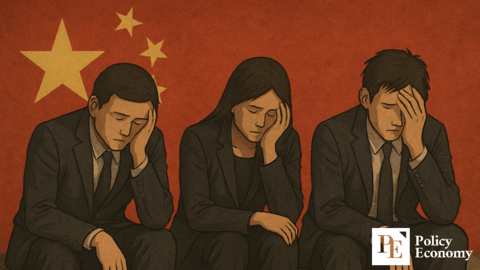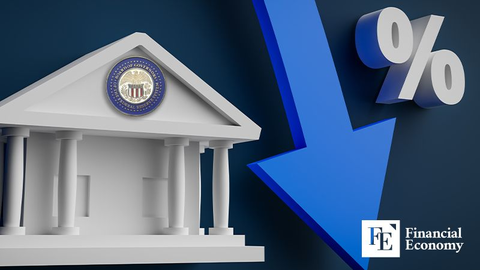Zelenskyy’s Sudden Shift: Is a Backdoor Deal with Trump Behind Ukraine’s Minerals Agreement?
Input
Modified
A Backdoor Deal with Trump? What is the Minerals Deal All About? A Dangerous Gamble for Ukraine?
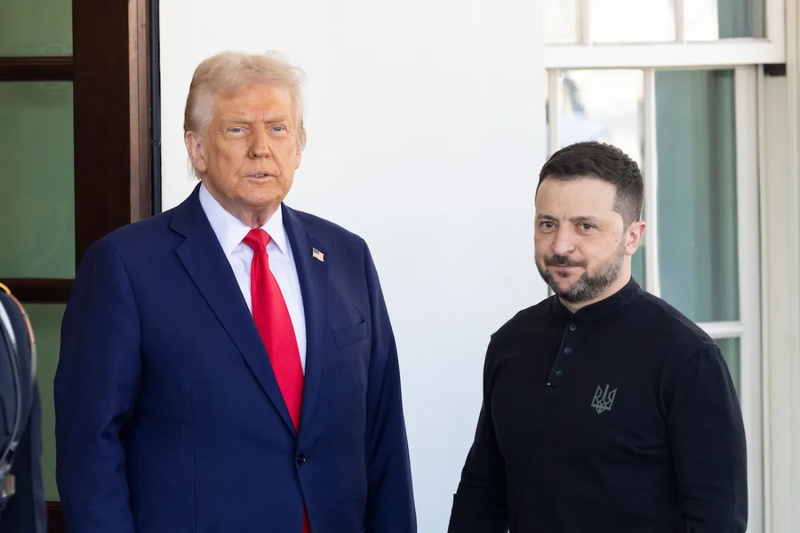
A Backdoor Deal with Trump?
The potential for a backdoor agreement with Trump is raised by Zelensky's willingness to sign a U.S. mineral deal.
A potential backdoor arrangement with former U.S. President Donald Trump has been the subject of speculation in light of Ukrainian President Volodymyr Zelenskyy's recent willingness to finalize a minerals agreement with the United States. Zelenskyy had previously expressed his opposition to the agreement, citing the potential impact on Ukraine's sovereignty and economic future, only a few months prior. Nevertheless, his abrupt shift in perspective has prompted inquiries regarding the potential involvement of Trump's political maneuvering and influence.
The minerals arrangement, which has been a source of disagreement in both Kyiv and Washington, would establish a joint reconstruction investment fund. Ukraine would contribute 50% of the revenue from its government-owned natural resource assets to this fund. This agreement is generally perceived as a means for the United States to recoup a portion of the financial assistance it has provided to Ukraine in the ongoing conflict with Russia. Nevertheless, there are apprehensions regarding the deal's genuine benefits for Ukraine and the potential for the United States to exert control over the country's valuable natural resources.
Zelenskyy initially hesitated to approve the agreement, as he was concerned that it would compromise Ukraine's economic independence, despite the fact that it has been on the table for a long time. His administration was especially apprehensive about provisions that would allow the United States to capitalize on Ukraine's mineral wealth without providing explicit security guarantees. The apprehension was that Ukraine could find itself in a precarious situation, as it would be forced to exchange its most valuable economic assets for financial assistance that would not necessarily bolster its position in the conflict.
Despite Zelenskyy's previous reluctance, he now appears to be prepared to sign the agreement, which has sparked speculation that a covert arrangement may have been made. Trump may be positioning himself as a mediator between Kyiv and Moscow, given that he has expressed admiration for Russian President Vladimir Putin and has adopted a less aggressive stance on supporting Ukraine. It is conceivable that Zelenskyy was presented with an alternative proposal, which could have involved Trump brokering a peace deal in exchange for Ukraine's commitment to the minerals agreement, in light of Trump's transactional approach to diplomacy and his prior transactions.
Political analysts are apprehensive about the potential for a covert understanding between Trump and Zelenskyy. Trump's re-entry into international negotiations, even as a private citizen, is believed by some to be an attempt to secure economic advantages for U.S. companies and allies. Others are concerned that the minerals agreement could be exploited as a means to compel Ukraine to accept a negotiated settlement with Russia, which may not necessarily be in the best interest of Ukraine's long-term sovereignty.
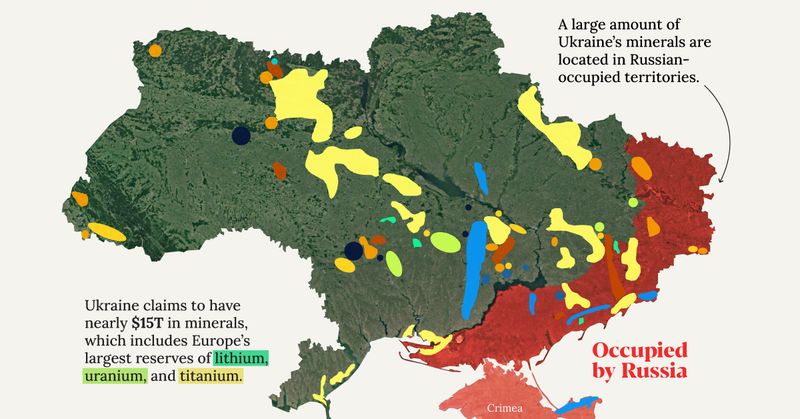
What is the Minerals Deal All About?
The minerals agreement between the United States and Ukraine is centered on Ukraine's purported deposits of lithium, cobalt, rare earth elements, and other strategic resources. These minerals are indispensable components of the exponentially expanding electric vehicle industry, electronics, and defense technologies. The United States has been actively pursuing alternative sources of rare earth minerals to mitigate its dependence on Chinese exports, as China currently controls the global supply of these minerals.
By safeguarding access to Ukraine's mineral wealth, the United States aims to ensure that critical materials do not fall into Russian hands and to establish a more stable supply chain. The agreement would involve American companies investing in the extraction and development of these resources, with Ukraine sharing the profits. Nevertheless, Ukraine has encountered difficulty in obtaining security guarantees from the United States, as Zelenskyy initially sought more robust guarantees that the United States would not abandon Kyiv after its resources were exhausted.
The agreement's financial structure has also been the subject of scrutiny. Half of Ukraine's revenue from state-owned natural resources would be allocated to a reconstruction fund, which would subsequently be utilized to repay U.S. investments, according to the proposed provisions. Critics contend that this arrangement disproportionately benefits the United States, as it effectively guarantees that American investments are repaid using Ukraine's own resources, rather than through direct financial returns from the minerals themselves.
Zelenskyy's initial opposition to the minerals agreement was rooted in a variety of concerns. Initially, he expressed concern that the agreement would grant the United States an excessive amount of control over Ukraine's natural resources, thereby rendering the country reliant on American interests. Secondly, he was apprehensive about the potential consequences of signing such an agreement in the absence of firm commitments from Washington regarding military and economic support.
Zelenskyy was hesitant to sign an agreement that did not ensure a positive benefit for Ukraine, as the Ukrainian government has long been apprehensive about Western powers exploiting its economic vulnerabilities. Furthermore, Zelenskyy prioritized the establishment of strategic partnerships and military assistance in lieu of solely economic agreements due to the ongoing conflict. Many members of his administration were of the opinion that signing the minerals agreement without obtaining supplementary security guarantees would be a risky move, as it could leave Ukraine vulnerable to future threats from Russia.
Nevertheless, recent reports indicate that Zelenskyy has been compelled to reevaluate his stance due to the prospective incentives from Trump and the pressure from Western allies. The abrupt change in his posture raises concerns about whether he was provided with assurances behind closed doors, either regarding security commitments or political support, by Trump and his allies.
The extent to which Ukraine possesses the enormous reserves of rare earth minerals that have been advertised is one of the most significant uncertainties associated with this agreement. Although Ukraine is believed to possess substantial deposits of lithium, cobalt, and other strategic resources, the precise extent of these reserves is still uncertain. Some geologists and industry specialists contend that Ukraine's mineral wealth has been exaggerated, and that the country may not be able to meet the U.S. expectations on a large scale.
The entire premise of the agreement could be undermined if Ukraine's deposits are found to be smaller or less economically viable than anticipated. This could not only expose Ukraine to financial instability but also potentially undermine its credibility on a global scale. Moreover, Ukraine may be subject to severe repercussions if the United States regards the agreement as a poor investment, as a result of overstating its resources to secure the agreement.
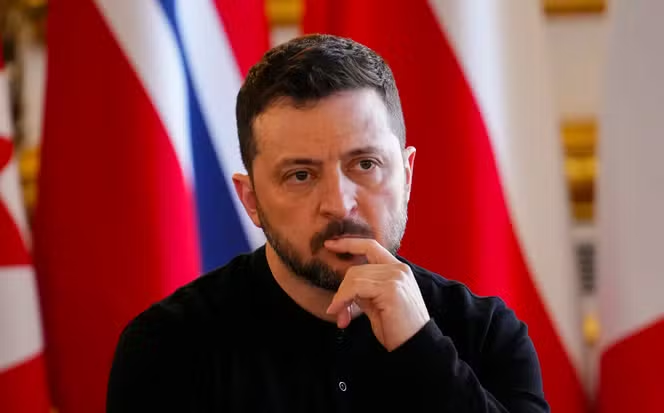
A Dangerous Gamble for Ukraine?
Ukraine is playing a perilous game if it is indeed overusing its mineral wealth as a bargaining tool. Ukraine is at risk of alienating critical allies and failing to secure the requisite resources for reconstruction by agreeing to an agreement that may not produce the anticipated economic benefits. Furthermore, the United States may experience a decline in future investments and support if it determines that Ukraine's mineral reserves are not as profitable as previously believed.
Additionally, the geopolitical implications are of great concern. If Ukraine has entered into this agreement under fraudulent pretenses, it could potentially undermine its credibility with other Western partners, thereby complicating the process of securing future aid and investment. Conversely, Ukraine may become embroiled in a complex web of political maneuvering that could prove detrimental in the long term if the minerals deal is implemented as part of a covert agreement with Trump.
Ultimately, the issue remains: Is Ukraine engaging in a high-stakes game that could result in disaster, or is it making a strategic move to secure its economic future? The world will be closely monitoring Zelenskyy's wager to determine whether it bears fruit or if it becomes a cautionary tale of political miscalculation as the agreement's specifics continue to emerge.

